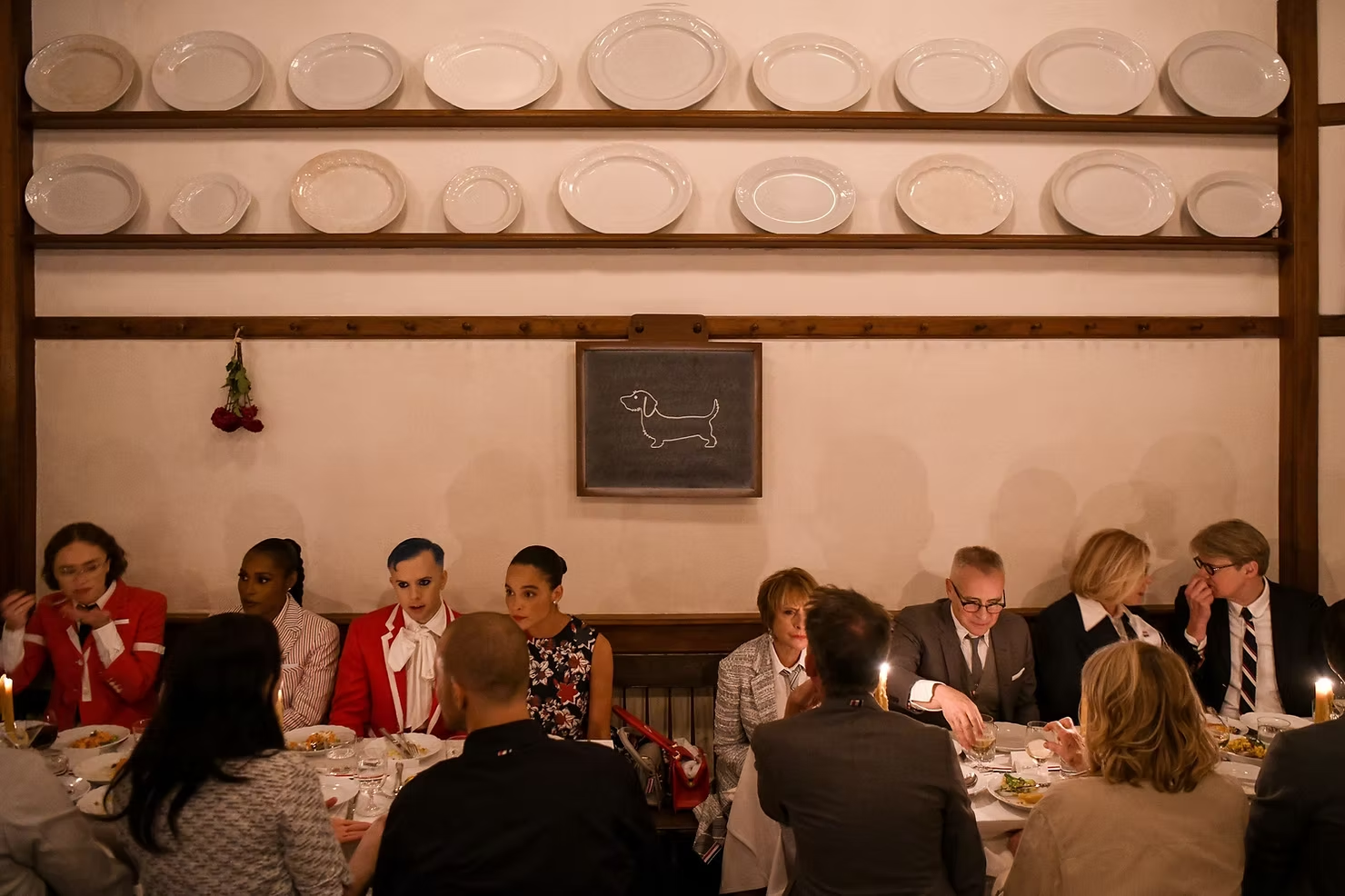TL;DR: Brands are leaning more into exclusive, limited capacity invite-only events to attract attention from top tier customers and fans. This approach represents a renewed focus on the quality of the occasion; the atmosphere, the mental presence of their guests and the experience.
Days after his SAG Award win for ‘Best Actor,’ Cartier hosted an exclusive poker night for Timothee Chalamet at LA’s Chateau Marmont last month. Attended by a host of celebrities like Kevin Hart, Kylie Jenner, and Kid Cudi, if it weren’t for GQ’s exclusive coverage of the event, there would’ve been no proof it ever happened.
The week after, Bottega Veneta put on an equally exclusive affair for guests in Milan: a special edition of Patti Smith and Soundwalk Collective’s intimate performances dubbed "Correspondences."
The common thread? Chances are, you had no idea these events took place—let alone received an invite.

Brands have realised that whilst social media has made participation and observation a constant expectation, physical access is the true commodity.
The best in class are no longer concerned with producing culture, they’re expertly curating environments that encourage others to amplify their brand into the cultural discourse for them.
Less Access, More Desire
Luxury brands don’t need to shout, they can wait for you to come to them: when Bottega Veneta deleted their Instagram account in 2021, they deliberately allowed industry press and the fan-led account New Bottega to lead the conversation around the brand for them.
The Row followed suit, reducing visual access to their collection by banning phones at their Paris AW24 show, creating a ‘you had to be there’ effect that boosted demand for the brand via word of mouth.
Now, amidst a well reported slowdown in sales, other luxury brands are finding ways to strategically limit widespread access, as well as the circle of customers they’re looking to court in order to justify rising prices.
But even away from the luxury sphere, other brands and projects are following the framework of the secret brand event in order to drive irrational desire and intrigue.
Last year, H&M collaborated with Charli XCX on a secret event in London, selling tickets via pop-up billboards that appeared around the city featuring a QR code for sign-up. Just last week, Richard Russell celebrated the release of his latest Everything Is Recorded album with two secret live shows in the basement of an Oxford Street corner shop. With no obvious entrance, fans lucky enough to spot tickets on ticket platform Dice were led behind a dark curtain for an intimate show from Russell and his collaborators.

But secret events aren’t just about gatekeeping—they serve a purpose.
For brands:
Secret events trade breadth for depth, cultivating deeper loyalty and heightened engagement among a brand’s most dedicated followers. Limited-capacity venues naturally filter for true enthusiasts, whose attendance becomes a badge of their devotion. For many brands, this focused approach is valuable, but for luxury brands, it can be critical.
For high-profile invitees:
Private, exclusive gatherings with limited media and public access offer an environment reminiscent of members-only clubs. This intimacy allows high-profile attendees to relax, fostering genuine appreciation for the brand and increasing their likelihood to pursue future collaborations.
For fans:
While access is not guaranteed, attending secret events significantly elevates the customer experience. When fans have the chance to mingle with celebrities and industry insiders, the event becomes more memorable, enhancing their long-term loyalty and deepening their connection with the brand.

What next?
In line with Edmond Lau’s recent thoughts on ‘Dark Mode’, the rise of secret brand event reflects a broader cultural shift towards a sense of true monetary and social luxury—one defined by genuine exclusivity, displays of wealth, and a guilt-free mindset.
Just last week in Paris, Haider Ackermann’s debut collection for Tom Ford felt like a testament to the aesthetic manifestation of this. Dubbed the ‘Boom Boom’ aesthetic, Ackermann’s show set replicated ‘a gamy club privé’, and the sense of ‘a secret room where everything happens,’ he told BoF.
With shifting economics and social norms giving brands a new found permission to exercise elitism, we’re expecting more to deliberately tighten their circles as they look to trade special access for brand loyalty.
